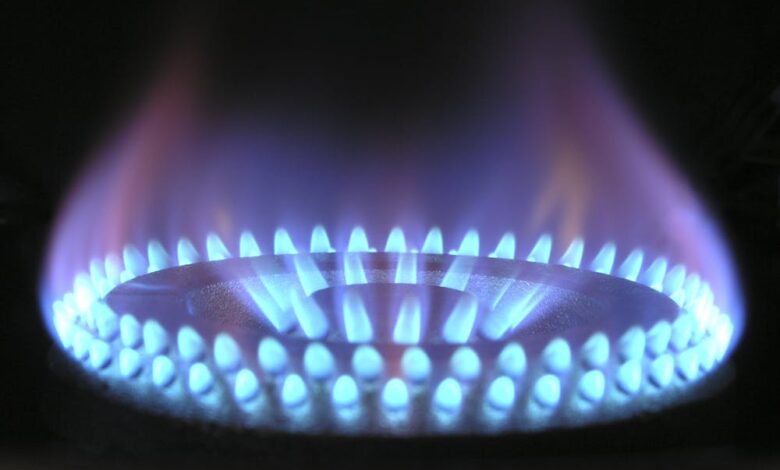New York Gas Stove Ban – Beginning of the End or End of the Beginning? – Watts Up With That?

Roger Caiazza
New York State recently banned the use of natural gas from most new buildings that was described as: “a major win for climate advocates, but a move that could spark pushback from fossil fuel interests”. I have been following New York’s net-zero transition plan for years and there are some interesting aspects associated with the “major win for climate advocates”.
Climate Act Background
The Climate Leadership & Community Protection Act (Climate Act) established a New York “Net Zero” target (85% reduction and 15% offset of emissions) by 2050 and an interim 2030 target of a 40% reduction by 2030. The Climate Action Council is responsible for preparing the Scoping Plan that outlines how to “achieve the State’s bold clean energy and climate agenda.” In brief, that plan is to electrify everything possible and power the electric gride with zero-emissions generating resources by 2040. The Integration Analysis prepared by the New York State Energy Research and Development Authority (NYSERDA) and its consultants quantifies the impact of the electrification strategies. That material was used to write a Draft Scoping Plan. After a year-long review the Scoping Plan recommendations were finalized at the end of 2022. In 2023 the Scoping Plan recommendations are supposed to be implemented through regulation and legislation
New York’s official website for the Climate Act promotes the strategies in the Scoping Plan including a fact sheet describing the plans to decarbonize New York’s buildings. It includes the following:
Adopt Zero-Emission Codes and Standards: More efficient, zero-emissions equipment for heating and cooking is increasingly available. That makes replacing existing equipment and appliances with cleaner and healthier alternatives an easy choice for New Yorkers. New construction projects will be required to install zero-emissions equipment in 2025 for single-family and low-rise buildings and in 2028 for high-rise and commercial buildings.
The Scoping Plan includes specific recommended strategies for the buildings sector. The relevant theme, “Adopt Zero-Emission Codes and Standards and Require Energy Benchmarking for Buildings”, included three strategies:
B1. Adopt Advanced Codes for Highly Efficient, Zero-Emission, and Resilient New Construction
B2. Adopt Standards for Zero-Emission Equipment and the Energy Performance of Existing Buildings
B3. Require Energy Benchmarking and Disclosure
The text states:
In existing buildings, the best opportunity for energy improvements is during routine home and capital improvements and when HVAC equipment is retired from service. Since the useful life of HVAC equipment ranges from 15 to 30 years, seizing the opportunities to electrify
buildings by 2050 requires near-term action.
Electrification and efficiency improvements in existing buildings present a larger challenge of sheer scale. The New York State Energy Research and Development Authority (NYSERDA), DEC, and New York State Department of State (DOS) should work together to adopt regulatory requirements that will bring about the end of fossil fuel combustion in buildings by prohibiting replacement of fossil fuel equipment at end of useful life, coordinated with action taken by the PSC and New York State Department of Public Service (DPS) to regulate gas utilities and with New York State Department of Labor (DOL) and the Office of Just Transition to promote workforce development. Building performance standards also will compel efficient operation of buildings and capital investments in high-performance building envelopes and efficient HVAC systems.
New York Legislation
As noted previously the plan for 2023 is to promulgate new regulations and pass new legislation to implement the Scoping Plan recommendations. New York’s strange political process includes an annual legislative self-made crisis in which legislation is held hostage to the annual budget. On May 2, over a month past the April 1 due date, the Legislature and Administration finally passed the budget bill that included the gas stove ban that got so much attention. The point of this article is that there were interesting aspects of the budget discussions this year that have bigger implications than the passage of the ban.
In my opinion, and certainly the belief of the climate activists, the Scoping Plan is pretty clear that fossil-fueled equipment is to be banned outright. Indeed, the legislation prohibits installation of “fossil-fuel equipment and building systems” in newly constructed buildings seven stories or less, except new commercial or industrial buildings over 100,000 ft2 on or after 12/31/25, and for all other buildings on or after 12/31/28”. However, the prohibition does not apply to
- The repair, alteration, addition, relocation, or other changes to pre-existing buildings
- The fossil-fuel prohibition shall exempt equipment and systems used for emergency back-up power and standby power; manufactured homes, and building used as a manufacturing facility, commercial food establishment, laboratory, car wash, laundromat, hospital, other medical facility, critical infrastructure, agricultural building, fuel cell system, or crematorium.
- To the “fullest extent feasible”, fossil-fuel equipment and building systems in such buildings are to be limited to areas where a prohibition is infeasible, and such areas must be “electrification ready”, except for those serving manufacturing or industrial processes. Emissions from allowed use must be minimized. “Financial considerations shall not be sufficient basis to determine physical or technical infeasibility.”
- The Energy Code shall exempt new building construction that requires new or expanded electric service, pursuant to §31.1 of the Public Service Law, when electric service cannot be reasonably provided by the grid.
When the ban on natural gas in new construction was first announced there was intense pushback. Apologists and the Governor were quick to point out that the ban only affected new construction and that nobody was coming to take away existing natural gas appliances. However, the Scoping Plan recommendations make it clear that the plan is to eventually ban the replacement of most existing fossil-fired infrastructure. Furthermore, the original language did not include all the caveats that ended up in the final bill described above. I interpret that to mean that the reality is that accommodations have to be made to pass Climate Act implementing legislation.
Emissions Accounting
The New York political theater starts with the Governor’s State of the State address in early January that outlines her legislative agenda for the year. This is followed by specific legislative proposals from the Administration, Senate, and Assembly. This year the initial budget bills from the Governor, Senate and Assembly included significant policy aspects related to the Climate Act that did not get included in the final budget bill but the debates are instructive.
For example, sometime during this process there was a revelation that prompted a specific legislative proposal to modify the emissions accounting because of excessive costs. Climate Action Council co-chairs Doreen Harris and Basil Seggos explained that::
“First and foremost, the governor is trying to maintain New York’s leadership on climate. It’s a core principle that she brought into office and we have been carrying that out for several years,” said Seggos.
But Gov. Hochul instructed both the DEC and NYSERDA to look at the affordability of Cap & Invest.
“We began running the numbers on that, based on some of the metrics being used by Washington state and some of our own, and revealed some…potentially extraordinary costs affiliated with the program,” Seggos explained. “So that’s really what this is. It isn’t a focus necessarily on methane itself, or any particular pollutant. It is how do we implement the CLCPA in a way that doesn’t put extraordinary costs on the pockets of New Yorkers.”
It seems astounding to me but it does appear that someone in the Administration finally started really looking at the potential costs of the Climate Act. When the first auction of allowances for the Washington state program produced costs higher than expected, DEC and NYSERDA ran the numbers and the results were a reality slap to the Administration. The response was to propose a change to the unique emissions accounting scheme used in the Climate Act.
In order to maximize the purported harm of natural gas use the Climate Act specified the use of global warming potential over 20 years rather than over 100 years as used by the Intergovernmental Panel on Climate Change, the United States government, and every other jurisdiction (since its implementation the state of Maryland has also begun to specify GWP-20). The result is that the number of tons of carbon dioxide equivalent emissions are increased and when that emission total was multiplied by the closing price of the Washington state auction the result was “extraordinary costs”.
In one word the response by climate activists to this legislation was “meltdown”. For example, NY Renews, a coalition of over 300 environmental, justice, faith, labor, and community groups that bills itself as the “force behind the nation’s most progressive climate law” had this to say:
S6030/A6039 is part of a larger pattern of attacks by the fossil fuel industry that threaten to sabotage New York’s nation-leading climate law, the Climate Leadership and Community Protection Act, and roll back hard-won standards for accurately accounting for the impacts of greenhouse gas emissions, particularly methane. If passed, the bill would change how the state measures methane and carbon dioxide emissions, pave the way for polluting corporations to emit without consequence, and harm the health and well-being of frontline community members who live, work, play, and pray in neighborhoods across NYS.
NY Renews unequivocally opposes the inclusion of this bill in the state budget and any deal that would include it. We’re calling on the state legislature to uphold the Climate Act as written into law and reject amendments that would threaten its power to protect and prepare New Yorkers facing the worst effects of the climate crisis.
In response to the outcry the Administration backed down from the proposal. They claimed that it distracted from the importance of passing the budget bill. Nonetheless, Seggos said “The fundamental takeaway is it’s full steam ahead for cap and invest with the climate action rebate and any other elements we’ll take up as soon as we can.”
Discussion
The reason that I am encouraged rather than discouraged by the enacted gas appliance ban on new construction is that a couple of issues came up that will have to be addressed. The political approach to punt difficult problems down the road can only work so long.
The initial blowback to the gas stove ban prompted the Administration to propose legislation that gradually eliminates fossil fuel-burning heating equipment from nearly all New York buildings, consistent with the Climate Action Council plan, but takes less aggressive steps to reduce the use of gas stoves. The proposed changes:
- Dec. 31, 2025: Prohibit all equipment (including stoves) that burn fossil fuels in new construction of single-family homes or apartment buildings of three stories or less.
- Dec. 31, 2028: Prohibit all fossil fuel-burning equipment (including stoves) in new construction of commercial buildings and multifamily structures of four stories or more.
- Jan. 1, 2030: Prohibit installation of heating or hot water equipment (but not stoves) in any single-family home or apartment building of three stories or less.
- Jan. 1, 2035: Prohibit installation of fossil fuel heating or hot water systems (but not stoves) in any commercial building or larger multifamily structure.
The final legislation only addressed the first two components. The Administration apparently hopes that the Scoping Plan recommendation to mandate electrification when existing fossil-fired appliances reach their end of life can be made palatable if gas stoves are exempted. I think that is naïve because so many people appreciate the resiliency and capabilities of fossil-fueled furnaces and hot water heaters too. When the legislation to implement a prohibit in-kind replacement of existing appliances comes up, I believe there will be intense blowback.
The final budget bill also included legislation for distribution of the proceeds from a cap and invest auction. I don’t see an easy path for the Administration to walk back their statements that the auction will result in extraordinary costs. They are on record saying the costs are unacceptable so how do they reconcile that?
Conclusion
At the start of the year the idea that the government is coming for your gas stove was dismissed as a right wing conspiracy:
- NYT: “No One Is Coming for Your Gas Stove Anytime Soon”
- Time: “How Gas Stoves Became the Latest Right-Wing Cause in the Culture Wars”
- Salon: “Rumors of a gas stove ban ignite a right-wing culture war”
- MSNBC: “No, the woke mob is not coming for your gas stove.”
- AP News: “FACT FOCUS: Biden administration isn’t banning gas stoves”
- The Washington Post: “GOP thrusts gas stoves, Biden’s green agenda into the culture wars”
However, New York’s Climate Act implementation demonstrates that a net-zero transition requires such a ban. It is not going to be possible to put off a debate about personal choice options and the advantages of fossil fuel for residential use because the New Yorkers who are blissfully unaware of this aspect of the Climate Act will demand to be heard.
The other aspect of this relates to the cap and invest program and the costs of the program. The Hochul Administration narrative is that the costs of inaction for the net zero Climate Act transition outweigh the costs of action but that statement is misleading unless they issue a caveat that the costs in the Scoping Plan do not include the costs of “already implemented” programs. My analyses of costs have found that there are other significant “already implemented” program costs (for example the costs of transportation electrification) and that means that the Administration claim does not include all the costs to transition to net-zero. It gets worse because as far as I can tell the Integration Analysis does include the benefits of already implemented programs while it excludes the costs. In order to get the desired result, the State analyses have a thumb pressing down on one side of the scale and the other thumb is pushing up the other side of the scale. I don’t see how the Administration can avoid a meaningful discussion of the costs that they admit are extraordinary.
CNN described the New York State ban on the use of natural gas from most new buildings as “a major win for climate advocates, but a move that could spark pushback from fossil fuel interests”. Advocates refuse to acknowledge the possibility that fossil fuel interests could align with the interests of the majority of New Yorkers who appreciate and value the resiliency and affordability of our existing fossil-fueled infrastructure. The proposed wholesale shift to unwanted technology without proper accounting of costs will be under intense scrutiny this year. I do not see how the Hochul Administration can avoid an open debate about the implications of the Climate Act for all New Yorkers.
—————————————————————————————————————————————
Roger Caiazza blogs on New York energy and environmental issues at Pragmatic Environmentalist of New York. More details on the Climate Leadership & Community Protection Act are available here. He has written over 300 articles about New York’s net-zero transition because he believes the ambitions for a zero-emissions economy embodied in the Climate Act outstrip available renewable technology such that the net-zero transition will do more harm than good. This represents his opinion and not the opinion of any of his previous employers or any other company with which he has been associated.




